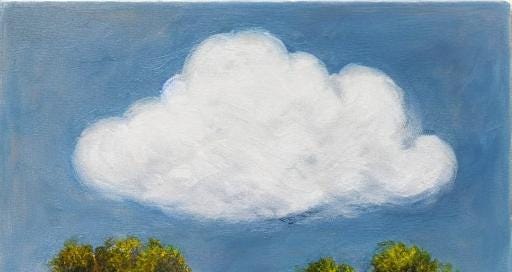All Symptoms Are Real
"Symptoms" refers to the patient's experience of their body and mind - pain, fatigue, weakness, depression, etc. This does not necessarily mean that a physical correlate will be found for them. "Signs" refer to observations that can be made by someone not the patient; they are objective in the sense that they can be observed by others. Sometimes a patient has symptoms, but no signs.
Meghan O’Rourke’s The Invisible Kingdom is a medical memoir about the author’s struggle with a chronic illness and her years-long struggle to have physicians acknowledge her suffering as real, and to get a proper diagnosis. She had numerous symptoms which did not fit into a pattern familiar to doctors.
O’Rourke points out that she grew up with the baseline belief that physicians move in a world of certainty. Medical phenomena may be very complex, but doctors have the art of diagnosis mostly figured out. If he or she ignores or neglects a symptom or concern, there must be a good reason, right?
Thus when physicians fail to make a diagnosis, patients doubt themselves.
The reality is that we all, patients and doctors alike, live on an island of knowledge in the middle of a vast ocean of ignorance. The discovery of what we know so far is a triumph of human effort, but only a small subset of all there is to know.
All symptoms are real, in the sense that all thoughts are real. They exist in the mind of the sufferer. They may or may not have their genesis in something in the physical world. They may instead be generated by other thoughts, that is, other symptoms. In the case of mental illnesses, this process remains inside the mind, not necessarily with a physical correlate. Symptoms are the mind’s signal that something is going wrong.
The majority of the diseases we recognize today were not recognized in the same way for most of human history. Almost every disease we have today existed then – multiple sclerosis, autoimmune disorders, specific cancers, infectious diseases, you name it.
What are the chances that we now recognize all of the diseases that exist in nature? Why would we happen to be at the precise point in history where this process of discovery has been exhausted?
Diseases unknown to medical science can lead to physical processes that send signals into the mind, and these symptoms are not going to be recognized by a trained physician in 2023. Maybe in a hundred, or five hundred years, but not now. This is why it behooves not only doctors but serious scientists and researchers to pay attention to patients: they may be experiencing phenomena that science does not yet recognize.
Note: This assumes patients are not lying; I think such lying is rare.




